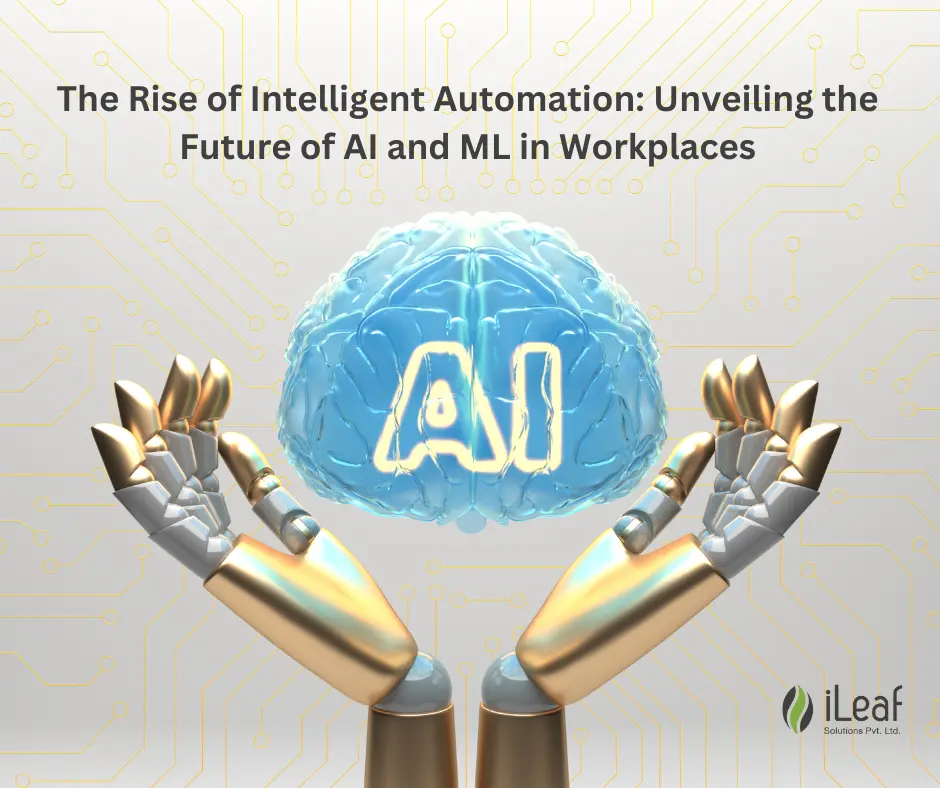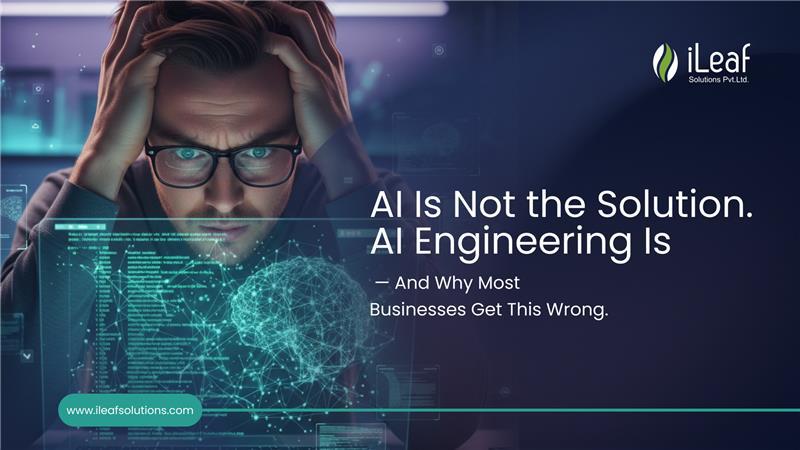The Rise of Intelligent Automation: Exploring the Future of AI and ML in the Workplace

In today's fast-paced digital world, the rise of intelligent automation has become more than just a buzzword - it's a reality that is transforming the way we work. Artificial Intelligence (AI) and Machine Learning (ML) are no longer science fiction concepts, but rather powerful tools that are reshaping the workplace as we know it. From streamlining repetitive tasks to making data-driven decisions, AI and ML are revolutionizing industries across the board. In this article, we will delve into the future of AI and ML in the workplace, exploring the exciting possibilities and potential challenges that lie ahead. Join us as we navigate through the ever-evolving landscape of intelligent automation and uncover how businesses can harness these technologies to drive innovation, enhance productivity, and pave the way for a more efficient and intelligent future workforce.
Comprehending AI and Machine Learning
AI and ML are two closely related fields that have gained significant traction in recent years. AI refers to the ability of machines to mimic human intelligence, enabling them to perform tasks that typically require human intelligence, such as problem-solving, decision-making, and natural language processing. Conversely, ML is a branch of AI that specifically concentrates on creating algorithms and models enabling machines to learn from data and utilize that knowledge to make predictions or decisions.
The Impact of AI and ML on the Workplace
The adoption of AI and ML in the workplace has already started to bring about significant changes. One of the key impacts is the automation of repetitive tasks, allowing employees to focus on more strategic and creative work. As an illustration, chatbots powered by AI can handle customer inquiries, thereby freeing human agents to tackle more intricate problems. Additionally, AI and ML can analyze large volumes of data to generate valuable insights, enabling businesses to make data-driven decisions more efficiently.
Challenges and Concerns Surrounding AI and ML in the Workplace
While the potential benefits of AI and ML are immense, there are also challenges and concerns that need to be addressed. A significant concern revolves around the potential displacement of jobs. As automation takes over routine tasks, some job roles may become obsolete, leading to unemployment or the need for upskilling. Another concern is the ethical implications of AI and ML, such as privacy issues and biases in algorithms. It is crucial for businesses to navigate these challenges and ensure responsible and ethical use of these technologies.
Benefits of Intelligent Automation in Business Operations
Intelligent automation offers numerous benefits to businesses, enhancing productivity and efficiency. By automating repetitive tasks, organizations can reduce errors and improve accuracy, leading to cost savings and improved customer satisfaction. ML algorithms can also improve operational processes by identifying patterns and anomalies in data, enabling organizations to optimize their workflows and make proactive decisions. Furthermore, AI-powered virtual assistants can provide personalized support to employees, increasing their productivity and job satisfaction.
Industries Adopting Intelligent Automation
Intelligent automation is being adopted across various industries, revolutionizing the way businesses operate. In the manufacturing sector, AI and ML are used to optimize production processes, improve product quality, and predict maintenance needs. In healthcare, AI-powered algorithms can analyze medical images and patient data to aid in diagnosis and treatment planning. Financial institutions are also leveraging intelligent automation for fraud detection, risk assessment, and personalized customer experiences.
The Role of AI and ML in Customer Service
AI and ML have significantly transformed the customer service landscape. Chatbots and virtual assistants equipped with natural language processing capabilities can handle customer queries and provide instant support, enhancing the overall customer experience. These AI-powered systems can also learn from customer interactions to improve their responses over time, leading to more accurate and personalized assistance. Furthermore, AI and ML can analyze customer data to identify patterns and trends, enabling businesses to deliver targeted marketing campaigns and personalized recommendations.
Future Trends and Advancements in Intelligent Automation
The future of intelligent automation looks promising, with advancements in AI and ML continuously pushing the boundaries of what is possible. Deep learning, a subset of ML, is enabling machines to learn and make decisions more like humans, leading to breakthroughs in areas such as image recognition and natural language understanding. Reinforcement learning, another branch of AI, is allowing machines to learn through trial and error, paving the way for autonomous systems and robots. Additionally, the integration of AI and ML with other emerging technologies, such as Internet of Things (IoT) and Big Data, will unlock new possibilities for intelligent automation.
Implementing Intelligent Automation in Your Organization
To harness the benefits of intelligent automation, organizations need to approach implementation strategically. It is essential to identify areas within the business where AI and ML can add value and prioritize those initiatives. Collaboration between IT and business teams is crucial to ensure successful implementation and integration of intelligent automation solutions. Organizations should also invest in the necessary infrastructure, data quality, and talent to support the adoption of AI and ML. Regular evaluation and refinement of the implemented solutions will ensure continuous improvement and maximize the benefits.
Ethical Considerations in AI and ML
As AI and ML become more prevalent in the workplace, ethical considerations become increasingly important. Transparency and accountability are fundamental principles that organizations should adhere to when using AI and ML. It is crucial to ensure that algorithms are free from biases and that data privacy and security are maintained. Additionally, organizations should establish clear guidelines for the responsible use of AI and ML and regularly assess the ethical implications of their applications.
Conclusion
The rise of intelligent automation is transforming the workplace, offering businesses unprecedented opportunities to enhance productivity, drive innovation, and deliver better customer experiences. AI and ML are no longer futuristic concepts but have become essential tools for businesses across various industries. However, it is essential to navigate the challenges and ethical considerations associated with these technologies to ensure their responsible and beneficial use. As we embrace the future of AI and ML, the possibilities are endless, and the potential for a more efficient and intelligent workforce is within reach.














